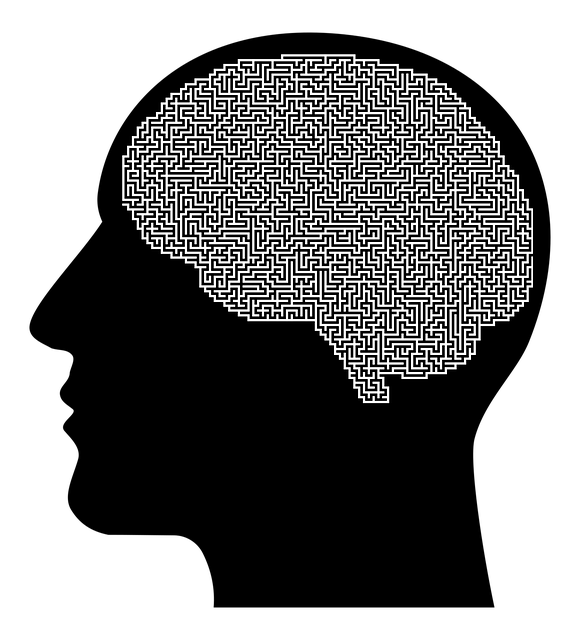Coping skills, especially spiritual and religious practices, are essential for navigating life's challenges and maintaining emotional well-being. Superior Spiritual-Religious Issues Therapy integrates faith into therapy sessions, offering a powerful tool for depression prevention, positive thinking, and fostering purpose. This approach, combining mental wellness journaling with introspection, enhances overall mental health. Integrating spiritual beliefs in crisis intervention and risk management planning provides tailored support, respect for diverse belief systems, and empowerment during crises. Ultimately, Superior Spiritual-Religious Issues Therapy, through practices like meditation and nature connection, promotes inner peace and emotional balance, empowering individuals to cope effectively.
Coping skills development is a vital component of mental health and wellbeing. In today’s fast-paced world, understanding and cultivating effective coping mechanisms can significantly mitigate stress and promote resilience. This article delves into the importance of these skills, exploring spiritual-religious issues in therapy as a potent tool for personal growth. We discuss superior spiritual practices and provide effective strategies to enhance your overall wellbeing through robust coping mechanisms.
- Understanding Coping Skills and Their Significance
- Exploring Spiritual-Religious Issues in Therapy
- Effective Strategies for Developing Coping Mechanisms
- Incorporating Superior Spiritual Practices for Enhanced Wellbeing
Understanding Coping Skills and Their Significance

Coping skills are the strategies we use to navigate life’s challenges and maintain emotional well-being. They play a pivotal role in our ability to manage stress, overcome adversity, and foster resilience. Understanding these skills is essential, especially when addressing superior spiritual-religious issues through therapy. Many individuals turn to their faith or spiritual practices as a coping mechanism, finding solace and strength in their beliefs during difficult times.
In the context of trauma support services and burnout prevention, effective coping skills can significantly enhance recovery and overall mental health. By learning and practicing emotional well-being promotion techniques, individuals can better regulate their emotions, reduce the impact of traumatic experiences, and prevent exhaustion from everyday stressors. These skills are invaluable tools that empower people to lead fulfilling lives despite life’s ups and downs.
Exploring Spiritual-Religious Issues in Therapy

Exploring spiritual-religious issues in therapy can provide a powerful tool for coping skills development. Many individuals find solace and meaning through their faith or spiritual practices, which can significantly impact their mental wellness. Therapists who are trained to address superior spiritual-religious issues can offer guidance tailored to an individual’s beliefs, helping them integrate their spiritual perspectives into their therapeutic journey. This holistic approach encourages a sense of purpose and resilience, contributing to effective depression prevention and fostering positive thinking.
Mental wellness journaling exercises can be particularly beneficial in this context. Individuals can record their spiritual reflections, prayers, or meditation experiences in a journal as a form of self-exploration. Such practices not only promote introspection but also serve as a means of tracking personal growth and coping strategies over time. By combining the insights gained from therapy with regular journaling, individuals can develop stronger resilience and better cope with life’s challenges, enhancing their overall mental wellness.
Effective Strategies for Developing Coping Mechanisms

Developing effective coping mechanisms is a vital aspect of mental wellness and crisis intervention. For individuals dealing with complex or traumatic experiences, incorporating spiritual or religious beliefs into their coping strategies can provide a powerful source of resilience. Superior Spiritual-Religious Issues Therapy offers a unique perspective, encouraging clients to explore their faith as a tool for healing and adaptation. This approach allows individuals to find solace, purpose, and community support during challenging times.
In the context of risk management planning for mental health professionals, integrating spiritual or religious considerations can enhance the overall care provided. Crisis intervention guidance often benefits from this approach, as it enables professionals to offer more comprehensive assistance, respecting clients’ diverse belief systems. By combining traditional therapy techniques with spiritual practices, mental health professionals can tailor interventions to meet the unique needs of each individual, fostering a sense of calm and empowerment in navigating life’s crises.
Incorporating Superior Spiritual Practices for Enhanced Wellbeing

Incorporating superior spiritual practices can significantly enhance one’s overall wellbeing and coping skills development. Therapy that integrates spiritual-religious issues has proven effective in depression prevention, offering individuals a deeper sense of purpose and connection to something greater than themselves. This approach not only boosts confidence but also fosters resilience in the face of life’s challenges. By engaging in meaningful spiritual practices, such as meditation, prayer, or spending time in nature, individuals can cultivate inner peace and emotional balance.
These practices have been shown to complement traditional social skills training, providing an additional layer of support for mental health. They encourage self-reflection and introspection, allowing individuals to better understand their values and beliefs. This increased self-awareness can lead to more effective coping strategies, as spiritual practices often empower people to find solace within themselves rather than relying solely on external validation or material possessions.
Coping skills development is a multifaceted process that, when nurtured, can significantly enhance one’s ability to navigate life’s challenges. By understanding coping mechanisms and their role in mental wellbeing, individuals can empower themselves to build resilience. Incorporating spiritual-religious practices into therapy offers a unique and often powerful approach to coping, providing a sense of purpose, tranquility, and support during difficult times. Effective strategies detailed in this article equip readers with tools to foster superior spiritual-religious issues therapy, ultimately leading to enhanced personal growth and improved mental health outcomes.














